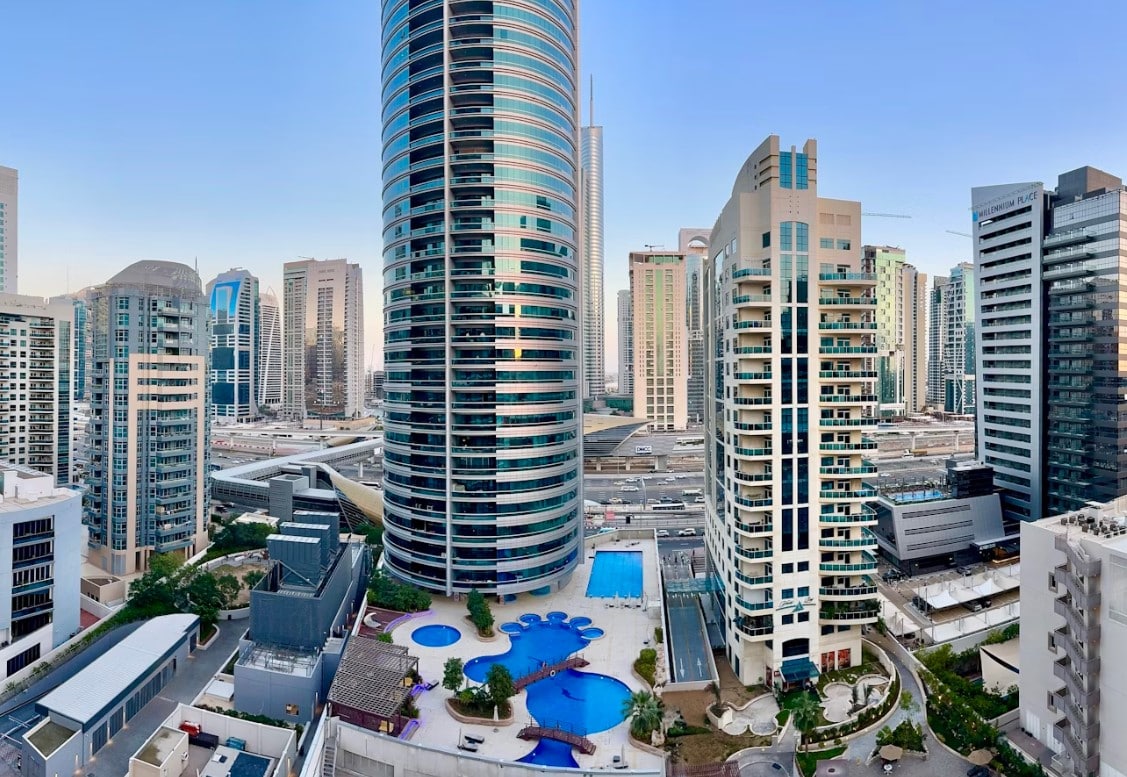Selling Property in the UAE: Step-by-Step Process and Legal Aspects

Buying and selling real estate in the Emirates is available not only to UAE citizens but also to foreign nationals. Transactions are tax-free, but they are strictly regulated by law and carried out exclusively through local banks. In certain cases, funds may be temporarily frozen in accordance with AML (anti-money laundering) requirements.
For those who want to profitably sell an apartment, manage an inheritance, or expand into the resale sector, it is important to understand in advance how the property sale process works in the UAE and which legal nuances should be taken into account.
To earn money on real estate in Dubai, it is not enough to follow market trends — you must also consider legal restrictions, banking risks and the specifics of structuring transactions, especially if the sale is part of an investment strategy.
How to Prepare for Selling Property
Before selling real estate, it is essential to understand what the process looks like. It consists of several sequential steps: valuation, verification, document preparation, and choosing a broker. Below is a brief overview of the key stages that will help you prepare for the transaction.
- – Property valuation
- – Legal due diligence
- – Document collection
- – Preparing the property
- – Choosing a broker for negotiations and finalizing the deal
Step 1. Property Valuation
The first stage is assessing the value of the property. Without understanding the real market price, you may lose thousands of dirhams or even disrupt the transaction. An overpriced property scares away buyers, while an underpriced one raises concerns about its condition.
To determine a fair market price for real estate in Dubai, use the following tools:
- Visit the RERA Calculator website — it will help you identify an acceptable price range.
- Explore platforms with current listings to compare the prices of similar properties in your area.
- Consult a RERA-licensed broker — they will carry out a professional valuation and help you avoid unrealistic expectations.
Step 2. Legal Due Diligence Before Selling
In the UAE, special attention is paid to protecting the interests of both parties to the transaction, which is why the sale process is organized as transparently as possible — through a bank and with the participation of a licensed agent.
Before signing the contract, it is important to ensure that the property is legally clear, meaning it is free from debts or any other obligations. The verification includes:
- Checking for outstanding mortgage payments (if the property is mortgaged).
- Verifying whether the property is rented out.
- Identifying the number of owners, heirs, and any potential legal disputes.
If any violations or debts are discovered during the verification process, the transaction is suspended until they are fully resolved.
Step 3. Document Preparation for the Transaction
To complete the transaction, registration with the Land Department is required — most often in Dubai, where the market is more open to foreign investors. The absence of even one document may lead to a delay in the process or loss of the buyer, so it is important to prepare the entire package in advance. Main documents required:
- – Title Deed — certificate confirming ownership of the property.
- – Mortgage Clearance Letter — confirmation of mortgage repayment (if applicable).
- – No Objection Certificate (NOC) — document from the developer confirming there are no outstanding claims: all service fees are paid, and ownership terms are met.
- – Passport or Emirates ID (for residents).
- – Tenancy Contract — if the property is rented out. This document shows the duration of the lease and whether it can be terminated early.
Step 4. Preparing the Property for Sale
Buyers in the UAE pay attention not only to location but also to the condition of the apartment. A clean, well-maintained, and tidy property inspires greater confidence and helps sell faster. Before viewings or publishing photos, remove personal belongings, free up space, and, if necessary, carry out cosmetic repairs — especially in the kitchen and bathrooms. To increase the attractiveness of your listing, you can order a professional photo shoot or video tour — high-quality visual presentation significantly speeds up the search for a buyer.
Step 5. Choosing a Broker and Transaction Support
As mentioned earlier, the involvement of a broker in property sales in the UAE is an essential requirement. Choosing a reliable specialist is a key stage that determines the transparency and success of the deal. A professional broker:
- – Conducts a property valuation based on current market indicators.
- – Determines the optimal time to list the property.
- – Publishes listings on leading real estate platforms.
- – Prepares the sales agreement and coordinates terms with both parties.
- – Manages the registration of the deal with the Dubai Land Department (DLD) and oversees bank settlements.
Work Only with Licensed Brokers
Real estate transactions in the UAE should be conducted only through official brokers who are registered and have a unique RERA ID number. You can verify the license on the Dubai REST website. This ensures transaction transparency and protects the seller’s interests. 
Real Estate Marketing: Where and How to Find Buyers
Selling property in the UAE requires a well-thought-out marketing strategy. It is important to choose effective buyer acquisition channels and organize the negotiation process to avoid delaying the transaction. A licensed broker with a RERA ID will handle property promotion, ensure access to the right audience, and streamline the sales process.
Good to know: Apartments in the Emirates sell significantly faster than houses or villas. The market leader remains Dubai — apartments here are purchased about four times more often than in other emirates, including the capital.
Listing Properties: Key Platforms
An owner can look for buyers independently, but without access to professional channels, this process can take a long time. To sell an apartment in Dubai quickly and at market value, it is recommended to post listings on official real estate portals, where only RERA-licensed agencies operate:
- – Property Finder — the largest platform focused on expats and investors.
- – Bayut — a popular portal among residents, especially for rental and resale segments.
- – Houza — specializes in selling villas, townhouses, and premium properties.
- – JustProperty — effective for promoting new developments and luxury apartments.
- – Dubizzle — a platform for budget properties and quick resales; partially available to private individuals, but professional brokers have extended posting options.
Licensed agencies publish listings simultaneously on all these portals, which significantly increases audience reach and accelerates sales. Moreover, they maintain their own client databases, allowing them to find buyers without additional advertising or wasted time.
Negotiation Nuances in the Emirates
In UAE business culture, the ability to negotiate is considered the norm. A small price concession often helps close a deal faster — a discount of up to 5% is viewed as a sign of respect from the seller. However, excessive price reductions may raise doubts about the property’s quality or condition. The price must be finally agreed upon and stated in the preliminary agreement (Memorandum of Understanding, MoU). After signing the document, price changes are not allowed: the figures in the cheque and MoU must match completely. Otherwise, the Dubai Land Department (DLD) will reject the transaction registration. If the buyer is a UAE national, it is recommended to entrust all negotiations to a licensed broker who speaks the language and understands local business traditions.
Payments and Deal Completion: How to Avoid Risks
It is important to note that every property sale in the UAE is subject to a source of funds verification (AML — Anti-Money Laundering). Without it, the transaction cannot be registered. The verification is carried out by the bank issuing the payment cheque. Regardless of the buyer’s status — whether a resident, investor, or legal entity — all payments must be made exclusively through the seller’s personal account in a UAE-registered bank. If the seller does not have such an account, it must be opened here. Transferring funds directly to a foreign account is not possible: a local bank is a mandatory participant in the transaction and records all monetary movements. This ensures transparency and protection of both parties in accordance with UAE law.
What AML Verification Includes
When selling property in the UAE, particular attention is paid to the financial transparency of the transaction. The bank issuing the cheque is required to perform an AML (Anti-Money Laundering) check to prevent illegal financial activities. As part of the verification, the following aspects are analyzed:
- – Source of the buyer’s funds.
- – Compliance of the amount stated in the contract and payment documents.
- – Absence of suspicious transactions or inconsistencies in the banking history.
The most thorough checks are conducted for foreign investors, especially when large transaction amounts are involved. The process usually takes between 2 and 10 business days.
Transaction Payments: How a Bank Cheque Works
In the UAE, property payments are made exclusively using a bank cheque (Manager’s Cheque) — a guaranteed payment instrument issued by the buyer’s bank. Main requirements:
- – The cheque must be issued in the name of the seller.
- – The amount must exactly match the value stated in the Memorandum of Understanding (MoU).
- – Before the transfer of funds, the cheque is submitted to the Trustee Office — a government institution where data verification and transaction approval take place.
- – After the verification is completed, the cheque is returned to the buyer — either personally or through the broker if they have a power of attorney to handle the transaction.
This mechanism ensures safety and control at every stage, minimizing the risk of fraud or unauthorized actions by any party.

Deal Registration Details
The registration process takes place at the Trustee Office — the government registrar responsible for the official transfer of ownership. After all terms are agreed upon and the cheque is issued, both parties arrive at the office to finalize the transaction. If needed, authorized representatives may attend on behalf of the parties under a Power of Attorney (POA). The document must be properly notarized in accordance with UAE law. The buyer must also pay a government fee of 4% of the property value. Payment is made via a separate cheque addressed to the Dubai Land Department (DLD). In some cases, both parties may agree to split this fee equally. The standard set of ownership documents includes:
- – Passport or Emirates ID of both parties;
- – Property purchase cheque;
- – DLD fee payment cheque.
After submission, the Trustee Office staff verify:
- – accuracy of the sale and purchase agreement;
- – matching of names and amounts on the cheques;
- – authenticity of the submitted documents.
If all requirements are met, the registrar confirms the transaction: the previous ownership certificate is canceled, and a new document is issued in the buyer’s name. The entire procedure usually takes between 30 minutes and 2 hours. Once registration is complete, the buyer receives the ownership certificate, and the seller receives the bank cheque for the sale amount.
Important to know: the sale of property for cash or the transfer of funds to third-party accounts, including relatives, is not allowed in the UAE — such transactions are not officially registered and are considered invalid.
How to Avoid Account Freezing
After completing the sale and receiving the bank cheque, the seller is free to manage their funds at their discretion. However, it is important to remember that cash withdrawals are not permitted in the UAE. All transactions must go exclusively through banks under the Anti-Money Laundering and Counter-Terrorist Financing (AML/CFT) policy. The bank may temporarily freeze the account if a transaction appears suspicious. To avoid such situations, it is advisable to follow a few simple rules in advance:
- – Check with your bank for applicable limits on transfers and transactions.
- – Avoid withdrawing the full amount immediately — keep part of the funds in the account for future payments or investments.
- – If necessary, transfer funds to a foreign bank in compliance with the established procedure.
It is important to understand that frequent large transactions or multiple property sales in a short period may raise additional questions from the bank. In this case, you may be asked to provide documents and explanations:
- – why the property was sold;
- – how you plan to use the received funds;
- – whether you are engaged in business activities legally;
- – whether all taxes and fees have been paid.
To avoid delays, it is recommended to prepare answers in advance and settle all current obligations, including utility payments and service fees. Even minor debts can lead to delays in account unfreezing and slow down access to your funds.
Legal Aspects Investors Should Be Aware Of
If real estate transactions are carried out regularly — several times a year — and are registered as private, banks may classify this as undeclared commercial activity. As a result, the account may be frozen until the circumstances are clarified.
When You Can Sell a Purchased Property
There are no formal time restrictions on selling a property; however, it cannot be sold while still under construction. Before selling a completed property, it is necessary to obtain a No Objection Certificate (NOC) from the developer — confirming the absence of debts and claims. If real estate sales become a systematic activity, it is recommended to conduct transactions through a company rather than as an individual. This simplifies the procedure and reduces the risk of account blocking.
Selling Property Through a Company
Regular property resale in the UAE is already considered a fully-fledged business that requires official registration. Investors should determine in advance how to structure ownership: under a natural person, legal entity, or an offshore company. In practice, most investors establish a legal entity in the Mainland or Free Zone, obtain the necessary license, and open a corporate account. All settlements are then processed through the company rather than personal accounts. This approach eliminates questions from banks and allows you to operate within the legal framework. The tax burden remains minimal:
- – 5% — VAT;
- – 9% — corporate tax;
- – 4% — registration fee (usually paid by the buyer).
Offshore Deals: Benefits and Risks
Some foreign investors set up offshore companies and purchase property in the company’s name. When selling, they transfer company shares instead of the property itself. This approach allows you to:
- – reduce tax and fee expenses (for example, avoid paying the 4% DLD fee);
- – minimize broker commissions;
- – speed up the process, as the transaction does not involve the Land Department.
However, the offshore model carries certain risks:
- – The bank may freeze the funds if the transaction structure appears non-transparent.
- – The buyer does not receive a Title Deed — ownership is registered indirectly through a company share.
- – To register an offshore structure, a real legal presence in the country of incorporation is required.
If the seller owns a business and works with experienced lawyers, the offshore structure can be implemented, but it requires careful planning and legal support.
Conclusion
This article has outlined the key aspects investors should consider when selling property in the UAE: the step-by-step process, legal requirements, and potential risks. Successful property transactions require not only market knowledge but also careful attention to documentation, banking procedures, and ownership structure. Without professional assistance, even a standard transaction may result in delays, account freezes, or financial losses. B2B Consulting offers comprehensive support for working with real estate and banking tools in the UAE. We help you:
- – choose the right bank based on your goals and residency status;
- – prepare a complete set of documents in accordance with compliance requirements;
- – pass KYC/AML checks smoothly and without delays;
- – open a bank account for an individual or a legal entity — depending on your ownership structure;
- – avoid common mistakes that can lead to account blocking.
In addition, we provide turnkey company registration services in the UAE, offering an optimal corporate structure tailored to your business model. If needed, our experts will assess the risks of using offshore schemes and recommend secure, compliant solutions. B2B Consulting provides legal and financial protection of the client’s interests at every stage — from the initial consultation to the final settlement of the transaction. Real estate in the UAE remains one of the most profitable assets on the market: rental income reaches 6–10% per year, and over the past decade, property values have increased by an average of 1.5 times. Buying and selling real estate in the Emirates is available not only to citizens but also to foreign investors. Transactions are not subject to taxation, but they are strictly regulated by law and must be conducted exclusively through local banks. In some cases, funds may be temporarily frozen under AML (Anti-Money Laundering) requirements. For those looking to profitably sell apartments, liquidate inherited property, or engage in property resale, it is essential to understand in advance how the property sale process in the UAE works and what legal aspects should be considered. To make money on real estate in Dubai, it is not enough to follow market trends — it is necessary to take into account legal restrictions, banking risks, and transaction structuring specifics, especially if selling property is part of an investment business.



